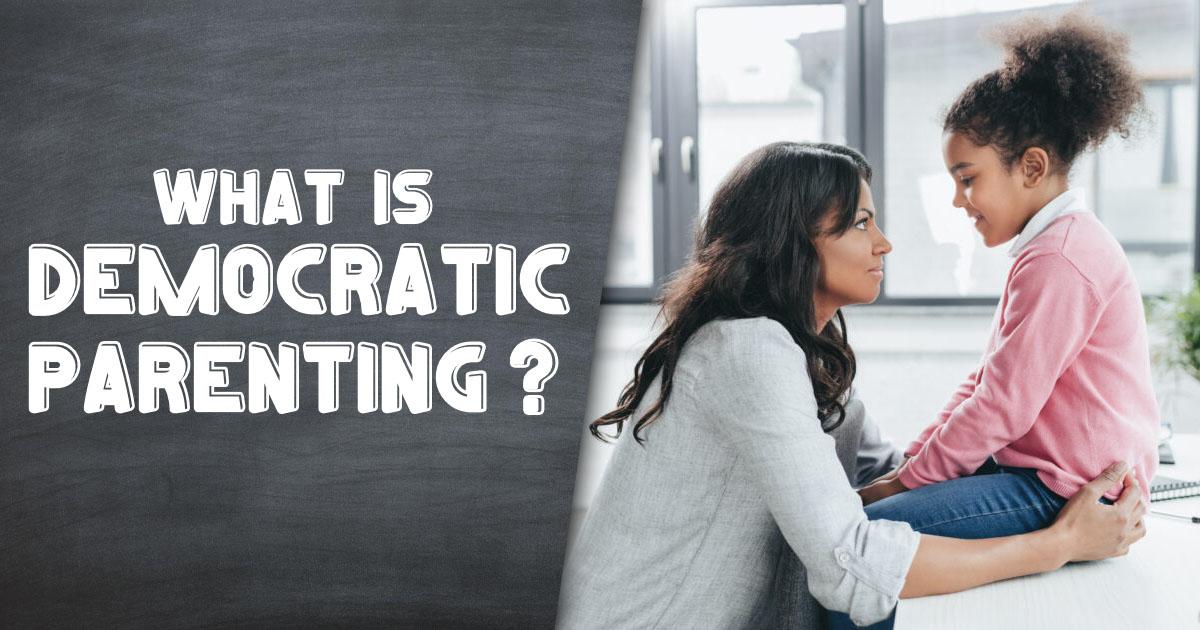What is Democratic Parenting? – A Deep Dive into Its Principles and Practices

Parenting styles have evolved significantly over the years, reflecting changes in societal norms, government laws, and our understanding of child development. In the past, authoritarian parenting—characterized by strict rules and high expectations—was the norm. Parents were seen as the ultimate authority, and children were expected to obey without question.
However, as society evolved, so did our understanding of effective parenting. Research began to highlight the negative effects of overly strict parenting on children’s psychological well-being. Changes in government laws, such as prohibitions against physical punishment in many countries, further influenced parenting practices.
Today, there’s a growing emphasis on respectful, empathetic parenting that values children’s autonomy while still providing guidance and structure. This shift has led to the rise of democratic parenting, a style that strikes a balance between freedom and discipline.
Democratic Parenting: A Balanced Approach
Democratic parenting is a style that combines warmth and understanding with clear boundaries and expectations. Rather than imposing rules, democratic parents involve their children in decision-making processes, fostering a sense of responsibility and autonomy.
This approach differs from other parenting styles in several ways. Unlike authoritarian parents, democratic parents value their children’s opinions and encourage open communication. And, unlike permissive parents, they set clear boundaries and expectations, helping children understand the consequences of their actions.
Children raised with democratic parenting tend to exhibit positive behaviors, such as independence, self-confidence, and empathy. They’re more likely to follow rules because they understand their purpose, not because they fear punishment.
Does democratic parenting work for most families? While it may not be the best fit for everyone, research suggests that this style is generally beneficial. A study published in the Journal of Clinical Child & Adolescent Psychology found that children raised with democratic parenting had better social skills, lower levels of problem behavior, and higher academic achievement.
Pros of Democratic Parenting
- Promotes Independence: This approach empowers children to make their own decisions, which fosters independence and self-reliance.
- Develops Positive Relationships: Democratic parenting can lead to positive relationships between parents and children as it encourages open communication and mutual respect.
- Reduces Behavioral Problems: This style of parenting has been associated with a reduction in behavioral problems as it promotes understanding and cooperation.
- Develops Sound Judgment: Children raised in a democratic environment are likely to develop sound judgment as they are given the freedom to make their own decisions and understand the consequences.
Cons of Democratic Parenting
- Requires Patience and Time: Democratic parenting requires a lot of patience and time from parents as they need to discuss decisions and negotiate with their children.
- Risk of Manipulation: If not implemented correctly, children may take advantage of this style and become manipulative.
- Potential for Inconsistency: There’s a risk of parents unknowingly becoming permissive if they don’t consistently apply the principles of democratic parenting.
- Consequences of Wrong Choices: Children may experience negative outcomes as a result of their choices, which could potentially have long-lasting impacts.
While democratic parenting has many benefits, it also comes with challenges that require patience, consistency, and understanding from parents. The key is to strike a balance, providing guidance and setting boundaries while still respecting the child’s autonomy.
Understanding Democratic Parenting: Key Aspects and Benefits
It’s important to note that democratic parenting is not about letting children do whatever they want. While it does encourage independence and decision-making, it also sets boundaries and rules. Parents often fear that this style of parenting will lead to a lack of discipline or control, but that’s not the case. In fact, democratic parenting can help children understand the reasons behind the rules, making them more likely to follow them.
Changing beliefs on parenting behavior is crucial in practicing democratic parenting. Parents need to understand that their children are active learners who absorb information best when they are actively involved in the process. This means allowing children to participate in decision-making and involving them in rule-making. By doing so, children learn about compromise and develop essential decision-making skills.
Active listening and negotiation are key aspects of democratic parenting. Parents need to listen to their children’s thoughts and feelings, validate them, and negotiate solutions to problems together. This fosters mutual respect and understanding.
In democratic parenting, natural consequences are preferred over logical consequences. Natural consequences allow children to learn from their own mistakes directly, thus understanding the impact of their actions. For instance, if a child refuses to wear a coat on a cold day, they will feel cold. This experience teaches them why it’s important to dress appropriately for the weather.
Lastly, self-care is essential for parents practicing democratic parenting. By taking care of their own physical and mental health, parents can better regulate their emotions and model healthy habits for their children. This, in turn, can enhance their ability to engage in democratic parenting effectively.
Democratic parenting, also known as authoritative parenting, is a style that encourages open communication and mutual respect between parents and children. It involves treating children as equals and allowing them to have a say in decisions that affect them.
Democratic Parenting Style: A Balanced Approach to Raising Independent Thinkers
In summary, democratic parenting is a balanced approach that encourages children’s autonomy while providing necessary guidance. It’s not about allowing children to do as they please, but rather involves setting clear boundaries and fostering understanding about the consequences of actions. Key aspects include active listening, negotiation, allowing natural consequences, and self-care for parents.
Although it might be challenging, democratic parenting can help in shaping children’s social, emotional, and cognitive development positively. This respectful method of parenting promotes a strong parent-child connection, encourages a sense of belonging, and fosters courage and capability in children.
